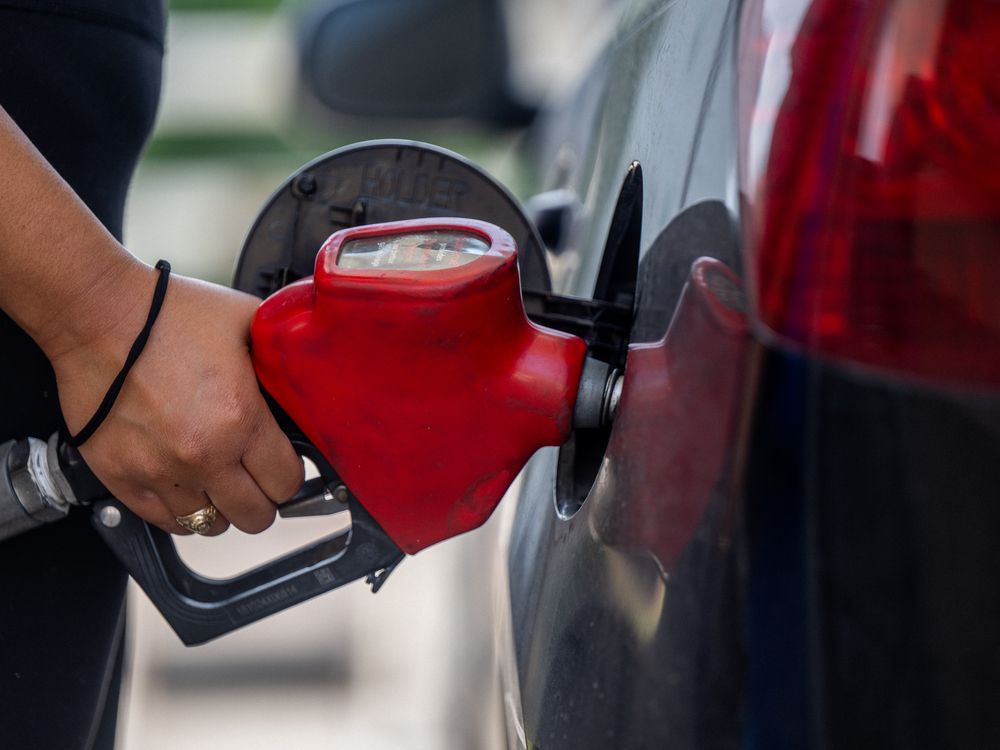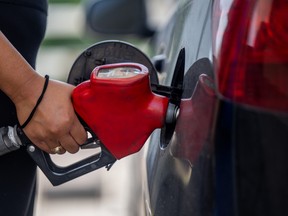‘Crisis situation’: Atlantic Canada fuel retailers ask Ottawa to cap credit card fees on soaring gas prices

Regulated Atlantic fuel market means profits being pinched, group says

Article content
Gas retailers in Atlantic Canada are asking the federal government to cap credit card fees on fuel purchases as gas prices soar to historic levels across the country.
Advertisement 2
Story continues below
Article content
In a letter addressed to the federal finance and innovation ministers, the Convenience Industry Council of Canada said the increase in fees businesses have to pay on the higher price of fuel is significantly eating into their gross profits.
Unlike gas retailers in most of Canada, those in all four Atlantic provinces are subjected to regulation that sets the maximum prices (and minimum for some) that they can charge customers for petroleum products.
“It’s a real crisis situation in Atlantic Canada,” the group’s chief executive, Anne Kothawala, said in an interview.
She noted that while businesses in other sectors can pass costs onto customers when prices go up, “gas retailers in Atlantic Canada don’t have the ability to do that” because their margins are regulated.
Advertisement 3
Story continues below
Article content
Jennifer Stewart, chief executive of the Canadian Energy Marketers Association, said “it’s not an advantageous situation to be in” for those regulated businesses.
“Everything’s compounding at once and making it a very difficult environment with really tight margins when you’re operating a business and you’re coming out of two years of COVID,” Stewart said in an interview.
Everything’s compounding at once and making it a very difficult environment
Jennifer Stewart
Atlantic provinces account for approximately 7.5 per cent of Canadian gasoline consumption, according to the Canada Energy Regulator.
The Canadian Automobile Association lists the current average price in Nova Scotia at 214.1/litre, up 64.57 per cent from last year’s average of 130.1/litre.
The letter also pointed out that the COVID-19 pandemic has resulted in a transition to touchless payments, with credit card and tap transactions now the norm, including for gas purchases. It said 55 per cent of customers pay for gas with their credit card.
Advertisement 4
Story continues below
Article content
-

Think energy costs are high? They’re likely headed in one direction — up
-

Eric Nuttall: There’s no time to waste — the world needs Canadian energy now
-

Canadian inflation rises to 6.8%: What you need to know
-

The global stagflation shock of 2022: How bad could it get?
“Reducing these fees will allow our stores to keep prices low for consumers at a time when affordability is a major challenge across the country,” wrote Convenience Industry Council of Canada, which represents convenience retail owners, operators and suppliers.
An owner and operator of five gas stations in Prince Edward Island said having a regulated market “is a good thing” as it “generally protects” consumers and smaller retailers.
“I’m definitely pro-regulation, however, the problem is we are in a fixed market. So that means (when the price of) fuel doubles, your credit card fees double,” said Ramona Roberts, who owns Big Dog Convenience and has been in the business for more than 20 years.
Roberts said the problem for Atlantic retailers like her is that they’re paid on a flat rate while credit card charges are based on a percentage.
“High gas prices really hurt retailers. The higher the price of gas goes, the lower our income goes,” she said. “If costs continue to increase and compensation continues to decrease, fuel providers are not going to be able to replenish their supply.”
• Email: dpaglinawan@postmedia.com | Twitter: denisepglnwn
Advertisement
Story continues below









